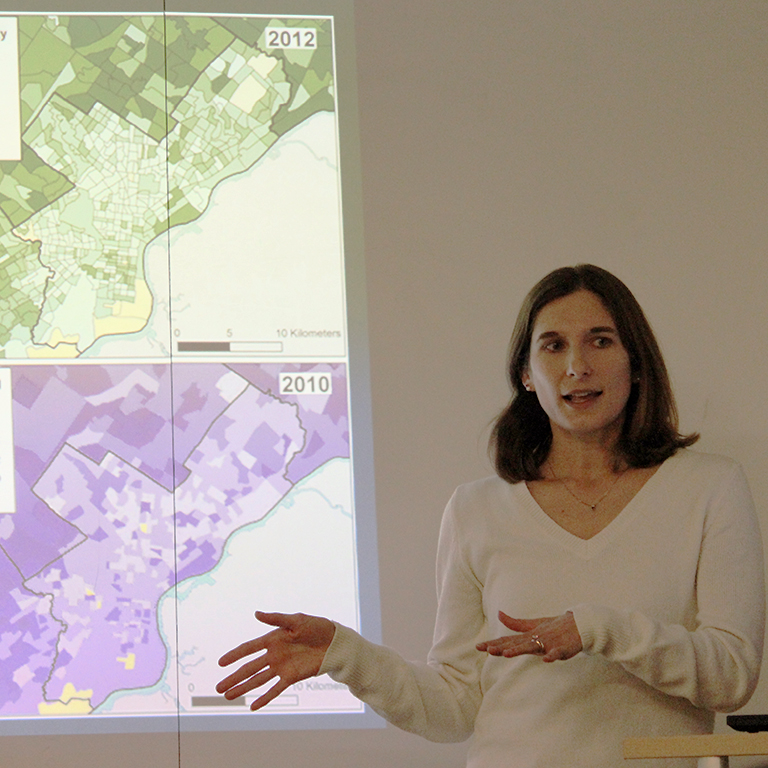Collaborative Expands Drexel's Urban Health Education, Practice and Research
January 20, 2016

The newly established Urban Health Collaborative (UHC) is rapidly deploying new programs to support urban health education, practice and research at Drexel University. The UHC's mission is to improve health in cities by increasing scientific knowledge and public awareness of health and health variation within cities, and by promoting urban policies and partnerships that promote health and reduce health inequalities.
Up to four Pilot Project Funding Awards will be granted to researchers working to promote urban health research. The maximum budget for each award is $30,000. Drexel University faculty members, postdoctoral fellows, or doctoral students are eligible to submit a proposal. Applicants are encouraged to consult with the Research and Data Core of the Urban Health Collaborative, led by Dean Ana Diez Roux and Amy Auchincloss, PhD, MPH, associate professor of Epidemiology and Biostatistics, to explore available data on the Philadelphia area.
First Year Master's of Public Health students in the Dornsife School of Public Health can apply for one of four funded practica grants to support practical experience relating to urban health.
"Students can select a practicum focused on urban health and have an opportunity to engage with the other UHC practicum students to present their work to a broader audience," said Jen Kolker, MPH, associate dean for Practice and associate professor of Health Management and Policy. Kolker co-leads the Policy and Community Engagement Core of the Urban Health Collaborative with Amy Carroll-Scott, PhD, MPH, assistant professor in Community Health and Prevention.
Incoming doctoral students with a research focus on understanding and improving health in cities are eligible for support to up to four students during the 2016-2017 academic year, as part of the new UHC Doctoral Fellows Program.
"Recruiting our first cohort of urban health doctoral fellows underscores our drive to increase the base of scientific knowledge that promotes health in cities and reduces health inequalities, while concurrently providing specialized urban health training for public health experts," said Yvonne Michael, ScD, SM, associate dean of Academic and Faculty Affairs. An associate professor in Epidemiology and Biostatistics, Michael is co-leading the Collaborative's Training Core with Felice Lê-Scherban, PhD, MPH, assistant professor in Epidemiology and Biostatistics.
This Fall, the Urban Health Collaborative began hosting a variety of research seminars, GIS workshops and office hours which continue throughout the year. A new Invited Speaker Series, "New Directions in Urban Health Research and Action," is slated to kick off in February.
The new Urban Health Collaborative website describes upcoming events, funding opportunities and data currently available from the UHC Research and Data core. UHC staff are available to consult on the possibility of utilizing UHC data for research and projects.